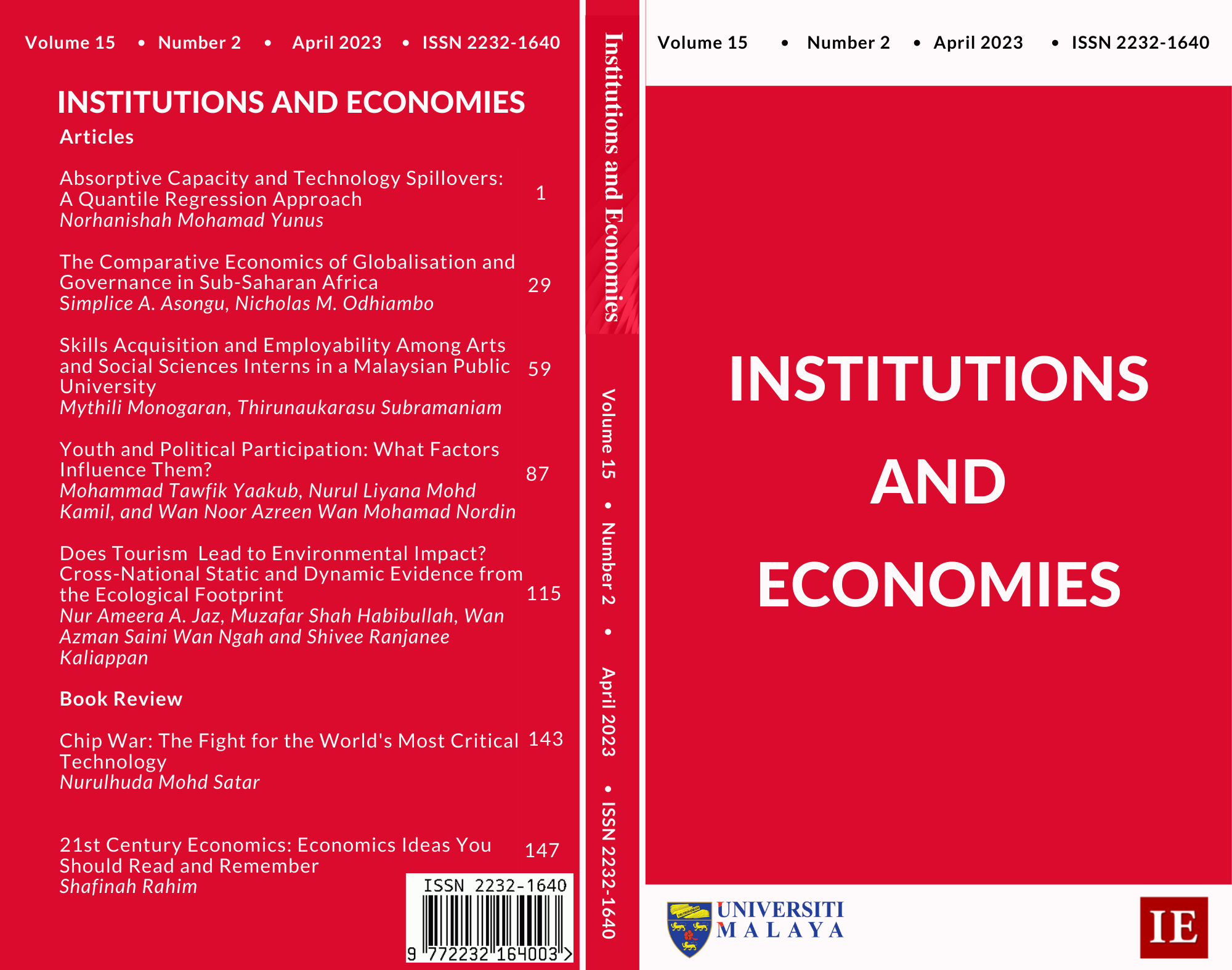The Comparative Economics of Globalisation and Governance in Sub-Saharan Africa
DOI:
https://doi.org/10.22452/IJIE.vol15no2.2Keywords:
Africa, Governance, Globalisation, Panel, Fixed effectsAbstract
This study investigates the effect of globalisation on governance in 40 Sub-Saharan African countries for the period of 2000-2019, with particular emphasis on income levels (low income versus middle income), legal origins (English common law versus French civil law), landlockedness (landlocked versus unlandlocked), resource wealth (oil-rich versus oil-poor) and political stability (stable versus unstable). The empirical evidence is based on fixed effects regressions in order to control for the unobserved heterogeneity. Political, economic, social, and general globalisation variables are used, while three bundled governance indicators are also employed to assess five main hypotheses. From baseline findings, while all globalisation dynamics negatively affect political governance, only political and social globalisation dynamics have a negative incidence on economic governance. Social and general globalisation dynamics positively affect institutional governance. The hypotheses that higher income, English common law, unlandlocked, oil-poor, and politically-stable countries are associated with higher levels of globalisation-driven governance, are valid, invalid, and partially valid contingent on the globalisation and governance dynamics.
Downloads
Downloads
Published
How to Cite
Issue
Section
License
Submission of a manuscript implies: that the work described is original, has not been published before (except in the form of an abstract or as part of a published lecture, review, or thesis); that is not under consideration for publication elsewhere; that its publication has been approved by all co-authors, if any, as well as tacitly or explicitly by the responsible authorities at the institution where the work was carried out. Transfer of copyright to the University of Malaya becomes effective if and when the article is accepted for publication. The copyright covers the exclusive right to reproduce and distribute the article, including reprints, translations, photographic reproductions, microform, electronic form (offline and online) or other reproductions of similar nature.
An author may self-archive the English language version of his/her article on his/her own website and his/her institutions repository; however he/she may not use the publishers PDF version which is posted on www.ijie.um.edu.my. Furthermore, the author may only post his/her version, provided acknowledgement is given to the original source of publication and a link must be accompanied by the following text: The original publication is available at www.ijie.um.edu.my.
All articles published in this journal are protected by copyright, which covers the exclusive rights to reproduce and redistribute the article (e.g. as offprint), as well as all translation rights. No material published in this journal may be reproduced photographically or stored on microfilm, in electronic database, video disks, etc., without first obtaining written permission from the publishers. The use of general descriptive names, trade names, trademarks, etc., in this publication, even if not specifically identified, does not imply that these names are not protected by the relevant laws and regulations.
The copyright owners consent does not include copying for general distribution, promotion, new works, or resale. In these cases, specific written permission must first be obtained from the publishers.








